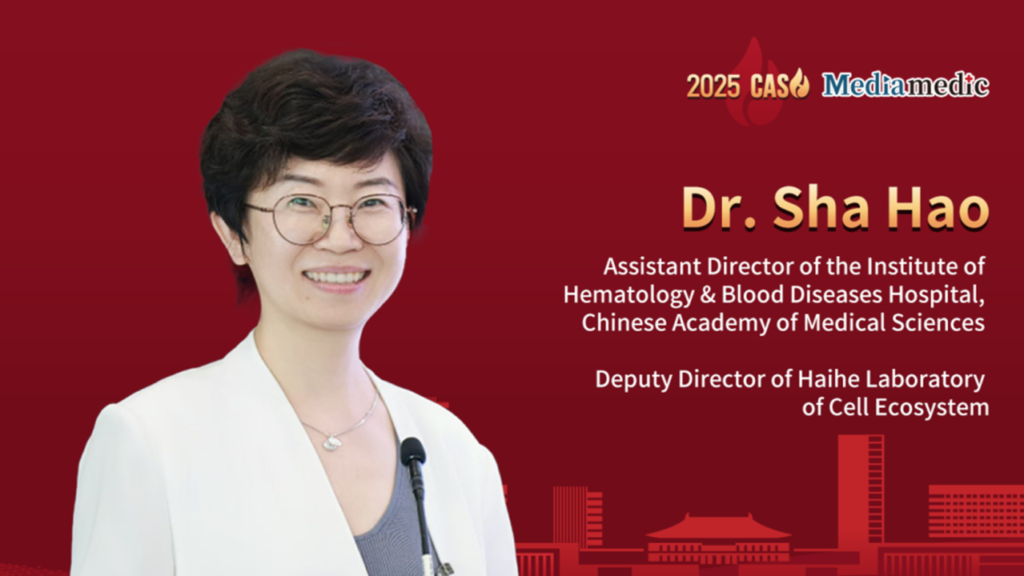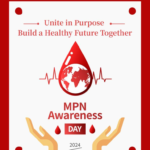
Editor's Note:As the new year begins, the 5th Annual Meeting of Chinese Alliance for Societies of Hematology (2025 CASH) took place from January 3 to 5 in Tianjin. With the theme of “Comprehensive Hematology, Comprehensive Health, and Comprehensive Well-being,” the event brought together leading experts and scholars in hematology to discuss the latest advances and future directions in the field. The Haihe Laboratory of Cell Ecosystem, a high-level research platform established in Tianjin, plays a pivotal role in advancing hematology.During the conference, Hematology Frontier interviewed Dr. Sha Hao, Assistant Director of the Institute of Hematology & Blood Diseases Hospital, Chinese Academy of Medical Sciences and Deputy Director of Haihe Laboratory of Cell Ecosystem. She shared insights on the laboratory’s background, project review mechanisms, and innovative strategies for research translation and application.
Background and Key Achievements of the Haihe Laboratory of Cell Ecosystem
Dr. Hao explained that the Haihe Laboratory of Cell Ecosystem was officially inaugurated on November 16, 2021, as one of six Haihe Laboratories in Tianjin. Established with the support of the Tianjin Municipal Government, it builds on the foundational stem cell research at the Institute of Hematology and Hospital of Blood Diseases. The laboratory focuses on tackling key challenges in cellular and gene therapy, emphasizing product development and technological innovation.
The laboratory’s work is centered on three platforms. The Frontier Technology Center drives original innovation from “0 to 1,” the Clinical Translation Platform focuses on full-cycle development pipelines for four key products, and the Innovation Synergy Platform collaborates with clinical institutions, research organizations, and enterprises to advance cellular and gene therapy products.
Project Review Mechanisms and Standards
Dr. Hao highlighted the Haihe Laboratory’s unique approach as a modern research institution, distinct from traditional setups. The laboratory employs a flexible and well-supported review system for project selection, talent recruitment, patent applications, and research translation.
Project proposals align with the laboratory’s mission and key objectives, supported by funding from the Tianjin Municipal Government. Competitive projects follow a “call for proposals” model, where candidates submit applications for evaluation. Industry-led projects allow enterprises to propose topics, with the laboratory collaborating to address challenges. For platform-oriented projects, the laboratory leverages technologies such as organoids and cell resource banks to tackle critical issues. Emergency projects are supported through a dedicated “Director’s Fund,” which was effectively utilized during the COVID-19 pandemic. Public welfare projects, jointly funded by the laboratory and enterprises, support young researchers and focus on key technical challenges through open applications.
Strategies for Research Translation and Application
Dr. Hao emphasized that the ultimate goal of scientific research is clinical application, with research translation playing a critical role. The Haihe Laboratory has implemented comprehensive measures to encourage researchers to actively translate findings into practical applications.
The laboratory has established a fast-track patent approval process with the support of the Tianjin Municipal Government, significantly reducing the time and cost associated with research translation. It also operates 15 incubation platforms, each approximately 150 square meters, to support startups and internal projects with streamlined registration processes. GMP production facilities enable process optimization and IIT clinical research. Collaborative funds with the High-Tech Zone provide financial support and investment consulting for startups, accelerating their market entry and addressing common challenges.
Multiple startups have already joined the Haihe Laboratory, with several winning awards in innovation competitions. For instance, a biotech company recently secured 12 million RMB in funding, exemplifying the laboratory’s role in driving industry innovation.
About Dr. Sha Hao
Dr. Sha Hao serves as the Assistant Director of the Institute of Hematology & Blood Diseases Hospital, Chinese Academy of Medical Sciences, as well as the Deputy Director of the Haihe Laboratory of Cell Ecosystem. She is also the Director of the Discipline Development Office at the institute and Minister of the Strategic Planning Department at the Tianjin Medical and Health Research Institute.
Recognized as a Tianjin “131 Talent” and one of Tianjin’s first cohort of medical rising stars, Dr. Hao was awarded the title of “Peking Union Medical College New Star” and received national recognition for her contributions to anti-pandemic efforts. Her accolades include the National Advanced Individual Award in Science and Technology System Anti-Pandemic Efforts and awards in China’s Hospital Management Elite Programs.
Dr. Hao specializes in the biology of hematopoietic stem cells in disease states, hematopoietic regeneration regulation, and translational research. She has led or participated in over 20 national-level projects, including the National Key Research and Development Program and CAMS Innovation Fund. With more than 60 published papers, she has contributed to Basic Hematology and Deng Jiadong Hematology and has been involved in drafting strategic reports for China’s 13th and 14th Five-Year Plans in hematology. Her contributions have earned her the Tianjin Natural Science Award as the second principal investigator.


